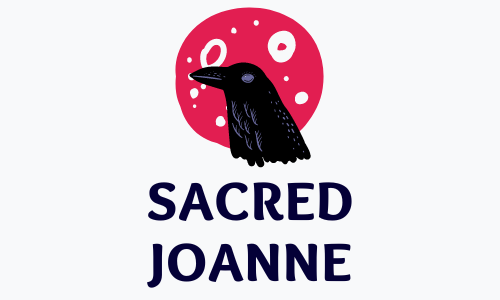Most Mature MBTI Types: 16 Personalities Ranked

People believe introverted judgment types are more mature since they are less prone to be flexible. Because they are intelligent, intuitive feeling types are deemed more mature.
Also, some might claim that INFPs are the most childish MBTI out there. Is that so? And why does it matter to know which MBTI is the most mature?
For example, knowing the most mature MBTI types helps us understand how they deal with frustration and distress. Generally:
- SJs complain a lot
- NTs go into robot mode
- NFs play tricks and hide
But that’s just the tip of the iceberg. Let’s now dig deeper into this topic and understand which MBTI types are most mature/childish and the potential struggles they might face throughout their maturity journeys.
MBTI Mental Age: Which Types Are Mature And Which Are Youthful?

INFJ Mental Age – 85
Chances are, you’ve always felt older than those around you. You live forever at the tail end of life, profoundly wondering about its nature and meaning while remaining infinitely tolerant of people around you.
You have the empathy and understanding of someone much older than yourself – regardless of your biological age, you are a natural sage.
INTJ Mental Age – 77
INTJs appear to mentally age at twice the rate of the majority of other types. Their constant drive for knowledge propels them mentally forward by leaps and bounds; they have little patience for the limits of youth and tend to embrace adults from a young age.
This personality type possesses the wisdom of an aged spirit and an insatiable quest for information that keeps them growing and extending well beyond their years.
ISFJ Mental Age – 63
You’ve always felt awkward with people your age as if a part of you would rather be at home baking cookies with your cat than out at a wild party.
You were born with the attitude of an adult, and it hasn’t changed much through the years. You understand that old age will be your chance to shine. You’ll be the best grandmother or grandfather on the street.
ENTJ Mental Age – 55
The average age of a Fortune 500 CEO is 55.
You’ve had the confidence, diligence, and decisiveness of someone considerably older than yourself for most of your life.
By middle age, your body will finally catch up with your mind’s maturity. 55 could be your moment to shine… but who are we kidding? Your entire life is your opportunity to shine.
ISTJ Mental Age – 50
ISTJs are born with responsibility. This personality takes their responsibilities seriously and has little time for messing around. Even as children, they frequently feel older than their peers and want to reach an age when they are finally treated seriously by their peers.
The ISTJ thrives in middle age because they are still physically capable of getting things done while still being old enough to earn the respect they deserve.
INFP Mental Age – 48
You were born as and continue to be an old spirit, regardless of biological age. You’ve been investigating life’s deeper truths for as long as you can remember.
Yet, your wisdom is bolstered by an intrinsically youthful sense of curiosity that motivates you to investigate each topic from various perspectives.
You may be described as 48 going on 4 – you have the wisdom of someone much older but the burning curiosity of someone much younger.
ENFJ Mental Age – 43
You’ve always taken on the role of a wise mentor to others. Your mental prowess is comparable to someone old enough to make sensible and altruistic decisions yet youthful enough to carry them out with an idealistic sense of joy.
You have a youthful enthusiasm backed up by an undeniable reservoir of wisdom.
ESTJ Mental Age – 41
ESTJs have the lively, boisterous attitude of a young college dude with the maturity and dedication of an adult.
This personality is compulsively professional and capable; they view middle age as a period when they have gained the respect of their colleagues while still being in good enough health to test their own limitations.
INTP Mental Age – 37
INTPs may be the most challenging to put into a particular mental age. This personality combines the intellectual aptitude and decisiveness of someone considerably older with the voracious curiosity of a very young child.
This kind is best characterized as “37 on 3.” Their unique way of seeing the world makes them ageless in many respects; they may be utterly incapable of ‘adulting,’ yet they are intellectually brilliant from a young age.
ESFJ Mental Age – 33
You’re cheerful, active, vibrant, mature, responsible, and structured – all the characteristics of a confident young adult. Our early thirties are our prime years when we are old enough to have established ourselves yet still young enough to enjoy good health.
And if you are anything, it is assured and established. You’ve always had the focus and sophistication of an adult yet the warmth and vitality of a much younger person.
ENFP Mental Age – 31
No matter how old you get, you still have the desire, energy, and passion of someone just starting out. You are best described as 21 going on 90.
You have the vitality of a much younger person yet the wisdom of a much older one.
ISFP Mental Age – 27
People say that your early to mid-20s are your most creative time, but for you, your whole life is your most creative time.
Your age could be called “23 going on 40” because you have the wisdom of someone much older than you but the creative energy of someone much younger.
ISTP Mental Age – 24
When ISTPs reach their physical peak, generally in their early twenties, they are in their prime. This personality type has a devilishly rebellious attitude that enjoys sensory thrills (also known as adrenaline junkies).
Nonetheless, they have the competence and responsibility of a quasi-adult at any age. 22 seems to fit this kind as an age when they can experience life on their own terms yet are not troubled by the conventional expectations of maturity.
ENTP Mental Age – 22
You have the creative energy of an idealistic kid combined with the professional savvy of an aggressive adult, placing you cognitively in the ‘young adult’ age group.
You maintain the adventurous, opportunistic mentality of someone much younger than yourself, paired with the resourceful capability of someone much older, no matter how old you grow.
ESFP Mental Age – 19
It’s not that you lack the maturity or depth of your actual biological age; instead, you exude the energy of someone much younger than yourself. You are constantly receptive to life in all of its facets.
You work hard, play hard, love hard, and live hard. You retain the effervescent vitality of someone much younger than yourself, regardless of age, and it is refreshing to everyone around you.
ESTP Mental Age – 17
ESTPs are the world’s straight-shooting rule-breakers who never wholly shed their rebellious youthful spirit.
This personality type never loses the vitality and passion of a young adult. They will not be stifled by the environment around them; they get what they want when they want it, and no one can tell them differently.
Potential Mid-Life Struggles for Each MBTI Type

Mature ENFPs: Struggles in Mid-Life
Growing job and family responsibilities frequently restrict the ENFP’s capacity to think and explore ideas and possibilities. They may often feel suffocated, confined, or constrained.
ENFPs may enter a Ne-Te thinking loop if their lives get too hectic and over-scheduled, making them more critical, overwhelmed, and disconnected from their inner spiritual feeling.
Mature ENTPs: Struggles in Mid-Life
Growing employment and family commitments usually limit the ENTP’s ability to think about and investigate new ideas and possibilities. They may regularly experience feelings of suffocation, confinement, or constraint.
If life becomes too hectic and over-scheduled, ENTPs may enter a Ne-Fe mental loop, which can cause them to become more dispersed and fixated on the reactions or approval of others.
They may lose touch with the internal logical concepts that serve as robust and dependable guides during these times.
Mature INFPs: Struggles in Mid-Life
Growing job and family responsibilities frequently hinder the INFP’s capacity to recharge sufficiently. Many INFPs in their forties and fifties are weary, suffocated, and cognitively constrained.
INFPs may develop grip stress if their lives become overly hectic and over-scheduled. As a result, they may become more critical, cynical, and harsh than usual.
Mature INTPs: Struggles in Mid-Life
Growing job and family obligations hinder the INTP’s capacity to recharge enough. Many INTPs in their forties and fifties are weary, suffocated, and cognitively constrained.
INTPs may develop grip tension if their lives become overly hectic and over-scheduled. As a result, they may become more emotionally reactive, insecure, and scattered.
Mature ENFJs: Struggles in Mid-Life
Growing job and family responsibilities may be rewarding but sometimes taxing. ENFJs who spend too much time being extroverted might become trapped in a Fe-Se loop. Individuals become more reactive, irresponsible, and disconnected from their instincts when this occurs.
Because of their pleasant and occasionally “bubbly” disposition, ENFJs in the workplace may believe their talents and intellect are undervalued.
Mature ENTJs: Struggles in Mid-Life
Growing family requirements might be burdensome for ENTJs. While they may be able to regulate their job environment, children and home ties are less so. They may struggle to deal with young children’s acute and fluctuating emotions and the monotonous nature of some aspects of family life.
ENTJs who over-schedule themselves and place too much emphasis on their production may become trapped in a Te-Se loop.
When this occurs, they are too fast to act and yell instructions at other individuals. Their judgments become less deliberate, and they are less mindful of the long-term consequences of their actions.
Mature INFJs: Struggles in Mid-Life
Growing employment and family commitments make it difficult for the INFJ to recharge adequately. Many INFJs in their forties and fifties feel exhausted, stifled, and intellectually limited.
If INFJs are overscheduled and overwhelmed by noise and obligations, they may develop grip stress. When this occurs, individuals become more irresponsible, impulsive, and disorganized.
Mature INTJs: Struggles in Mid-Life
During midlife, career and family demands tend to increase. INTJs may feel pushed and dragged between tasks, with little opportunity for silence and thought. As a result, individuals may experience feelings of suffocation, overwhelm, and irritability.
If INTJs are overscheduled and overwhelmed by noise and obligations, they may develop grip stress. When this occurs, individuals become more irresponsible, impulsive, and disorganized.
Mature ESFPs: Struggles in Mid-Life
Growing job and family obligations frequently restrict the ESFP’s capacity to explore chances and experiences on the spur of the moment. They may often feel suffocated, confined, or constrained.
ESFPs might become trapped in a Se-Te cycle if they are over-scheduled and overburdened with external responsibilities. Due to this, they become more irresponsible, impulsive, demanding, and critical.
Mature ESTPs: Struggles in Mid-Life
Growing professional and family pressures frequently hinder ESTPs’ capacity to explore chances and experiences on the spur of the moment. They may often feel suffocated, confined, or constrained.
ESTPs can enter a Se-Fe loop if they are overscheduled and overburdened by external obligations. As a result, they become more irresponsible, manipulative, reactive, and preoccupied with how others see them.
Mature ISFPs: Struggles in Mid-Life
During middle age, job and family responsibilities tend to double. ISFPs may feel burdened by job lists and demands that provide little time for calm and introspection. As a result, individuals may experience feelings of suffocation, overwhelm, and irritability.
ISFPs might feel grip tension if their schedules are overly packed or they are not provided enough alone time. This causes them to become more critical, cynical, and mired in meaningless busy work.
Mature ISTPs: Struggles in Mid-Life
During midlife, job, and family pressures tend to increase. ISTPs may feel burdened by task lists and expectations that provide little time for solitude and energy restoration. As a result, they may feel overstimulated, overwhelmed, and confined.
Grip tension can occur when ISTPs’ schedules are too busy, or they are not allowed enough alone time. This causes them to become more emotionally reactive, disorganized, and prone to outbursts.
Mature ESFJs: Struggles in Mid-Life
ESFJs have a strong sense of duty to the people around them. They may get overburdened with the demands and desires of others due to their jobs, coworkers, and children. This can lead to feelings of overload, worry, and imbalance.
If ESFJs get excessively preoccupied with external expectations and activities, they may become trapped in a Fe-Ne loop. When this occurs, individuals become more disorganized, people-pleasing, and disconnected from reality and their own bodily demands.
Mature ESTJs: Struggles in Mid-Life
ESTJs are highly concerned about their surroundings. They may find it challenging to unwind and appreciate the moment. This is especially true as the demands of job and family pile up around middle age.
If ESTJs get excessively preoccupied with external expectations and activities, they might become trapped in a Te-Ne loop. When this occurs, they become more disorganized, critical, disoriented, and consumed with worthless busy work.
Mature ISFJs: Struggles in Mid-Life
Work and family responsibilities tend to increase in midlife. Task lists, deadlines, and the requirements of their families or companies may weigh heavily on ISFJs. They may feel overloaded, over-stimulated, and confined if they do not have time for solitude and energy replenishment.
If ISFJs’ schedules are too crowded or they aren’t allowed enough alone time, they may develop grip tension. When this occurs, they become more emotional, concerned, and troubled with the worst-case scenarios they anticipate coming true.
Mature ISTJs: Struggles in Mid-Life
During midlife, career and family pressures tend to increase. Task lists, deadlines, and the requirements of their families or employers may trap ISTJs. They may feel overwhelmed, over-stimulated, and distracted if they do not take time for calm and energy replenishment.
Grip tension can occur when an ISTJ’s schedule is overly packed, or they are not provided enough alone time. When this happens, individuals become increasingly panicked, concerned, and troubled by worst-case scenarios that they picture coming true.
Which MBTI Personality Types Mature Quickly?

Because of their dedication, organization, and preference for finality, Judging types mature faster. Introverted Intuitives have a profound perspective on life. Hence they are usually very mature.
Introverts have a minor advantage over extroverts when it comes to maturing quickly. Introverted children grow mentally faster because they like to spend their time alone thinking or performing puzzles. Adults perceive them as more mature, particularly the tiny INxxs.
INFJs and INTJs are more likely to mature swiftly and develop their cognitive functions than other personality types. Both personality types are thoughtful, intelligent, and contemplative about the motivations of individuals or technical systems.
Strong Se/Si types may be early walkers and even ‘athletic prodigies.’ Because they, like most humans, are sensors, this may be seen as having earlier physical maturation.
Extraverted youngsters, particularly ESxx types, mature faster in terms of peer relationships.
A young INFJ child may appear more academically precocious since an INFJ likes to communicate with the teacher and share information from an early age.
INFJ is the child who enjoys reading aloud to the class, reads effectively, and does so in a lively manner that the listeners like.
A young INTJ youngster is smarter but uninterested in any of that but will assist other students who seek assistance directly. They may not engage in social activities like INFJs, and others may overlook their intelligence.
The small INTP appears to know everything, but because they have yet to learn to organize information efficiently, they may seem to know random things and be excellent at games.
As a child, the INFP child may not appear to have an intellectual mind; calm and gentle, they frequently surprise teachers with how well they perform on standardized tests.
In the cold multiple-choice type of testing, Fi is used as a lens, and Ne-Si-Ti is the ultimate combo for the educated guess and for creativity. Their abilities in art and thought are the most diverse.
ISTJs appear mature because they tend to obey rules and respect authority.
ENFJ children may appear to be the most mature among their peers because they are intellectual, aware of what others are doing in the real world, and understand their peers. They appear intelligent because they have an intrinsic sense of ethics.
ENTJs only fall short because they are less likely to compromise, which may appear less mature to others.
ESFJs can appear as ‘little mother hens’ or ‘protective team captains.’
As youngsters, P types are less inclined to follow through on plans, which may be interpreted as less mature. Although the J function does not emerge until early adulthood for many people.
Final Thoughts
Because introverted judgment types are less likely to be flexible, people assume they are more mature. With this post, I hope to have clarified this and other questions about MBTI and maturity.
But remember, this isn’t the last word! It differs greatly depending on who you are, how you were raised, and so on. This is only a generalization.
You can read about the remarkable aspects of the other types in my other blog entries!
What’s Next?
How To Motivate An INTP: Do’s and Don’ts
Why Are INFPs So Sad? Dissecting The Depressed INFP
Most Empathetic MBTI Types: 16 Personalities Ranked
ENTPs & Heartbreak: What Breaks an ENTPs Heart
Featuring 10 powerful exercises, offering a glimpse into the transformative practice of shadow work.
